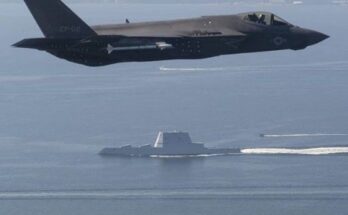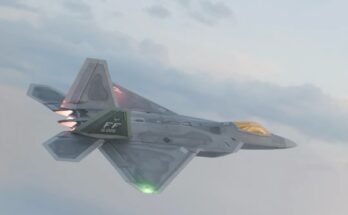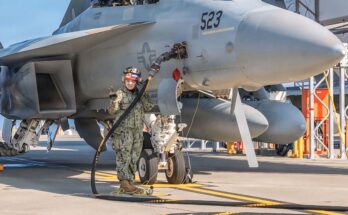
The X-47B Unmanned Combat Air System Demonstration (UCAS-D) aboard USS Theodore Roosevelt (CVN-71) was a major milestone for integrating unmanned systems into carrier operations. Here are the key points:
Overview
- Program: UCAS-D (Unmanned Combat Air System Demonstrator)
- Aircraft: Northrop Grumman X-47B
- Carrier: USS Theodore Roosevelt (CVN-71)
- Timeline: Significant tests conducted in 2014
- Objective: Demonstrate the feasibility of operating a tailless, stealthy, unmanned combat aircraft from an aircraft carrier.
Key Achievements
- Catapult Launch & Arrested Landing
- The X-47B successfully performed catapult launches and arrested landings on a carrier deck, mimicking manned aircraft procedures.
- First unmanned aircraft to autonomously launch and recover aboard an aircraft carrier.
- Deck Handling
- Demonstrated ability to taxi and maneuver autonomously on a crowded carrier flight deck using wireless deck handling controls.
- Integration with Manned Aircraft
- Conducted integrated flight operations with F/A-18s, including touch-and-go landings and flight pattern sequencing, proving compatibility with standard carrier ops.
- Autonomous Aerial Refueling (AAR)
- Later in 2015 (land-based testing), the X-47B achieved autonomous aerial refueling, extending endurance capabilities.
Specifications (X-47B)
- Wingspan: 62 ft (folded: 30.9 ft)
- Length: 38.2 ft
- Height: 10.4 ft
- Range: Over 2,000 nautical miles
- Payload: ~4,500 lbs
- Engine: Pratt & Whitney F100-PW-220U
- Stealth: Radar cross-section reduction design
Program Significance
- Paved the way for future Carrier-Based Unmanned Aerial Vehicles (CB-UAVs).
- Influenced the development of the MQ-25 Stingray, a carrier-based refueling drone.
- Demonstrated critical technologies for autonomous carrier operations, deck handling, and aerial refueling.
✅ Do you want me to write a short descriptive caption, create an infographic-style summary, or prepare a detailed article with timeline and images about this event?


